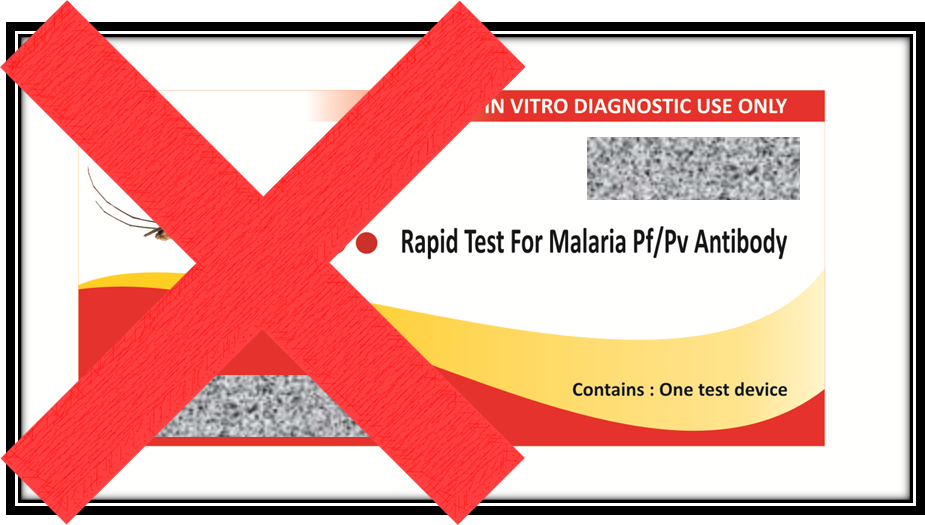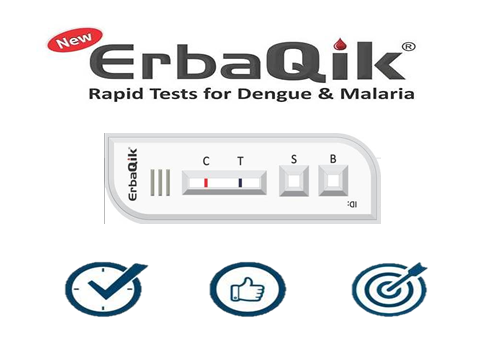As a step towards eliminating Malaria from India by 2030, the Union Health Ministry issued a notification on 23rd March’ 2018, stating the following: "The Central Government hereby prohibits manufacture for sale, sale and distribution of the test kits used in Antibody Detecting Rapid Diagnostic Tests for routine diagnosis of malaria."

The order observed that these kits as a form of serological testing are not practical for routine diagnosis of acute Malaria, owing to the time required for the development of the antibody, the persistence of antibodies after clearance of an active infection and the fact that serology does not detect current infection, but only measures past exposure.
This notification was based on the recommendations by the expert committee appointed by the central government, which arrived at a conclusion that the malaria antibody tests has no therapeutic justification, and therefore, was put into force with immediate effect.
Important points from the notification:
- “And whereas, there is a rampant use of Antibody Detecting Rapid Diagnostic Tests due to low cost and free availability of these tests;”
- “And whereas, the false positive rate in the endemic areas is also high as patients with fever due to other reasons, who test negative by antigen detection, test positive by Antibody Detecting Rapid Diagnostic Tests.”
- “And whereas, the only tests used in diagnosis are Antigen Detecting Rapid Diagnostic Tests and blood smear examination, and, therefore, there would not be any problems faced for malaria diagnosis by banning the Antibody Detecting Rapid Diagnostic Tests”
The World Health Organization (WHO) too, does not recommend antibody based tests as it may give false results. Rather, it advises use of malaria antigen test which works by detecting antigens in the blood which are released by the parasite.[2]
India accounts for 6% of all malaria cases reported globally, as per the World Malaria Report 2017. Presently, malaria antibodies tests kits are being used by the doctors mainly because of its low costs as well as easy availability. Although it is economical, the false positive rates in endemic areas were high. There have been reported cases where people with fever who tested positive in the rapid antibody test, were later tested negative on antigen test.
The notification also states that since other affordable and more reliable tests like Malaria Antigen Rapid test and Blood Smear microscopy can be used for the diagnosis of Malaria, there will not be an impact on Malaria diagnosis by banning the Malaria Antibody Rapid Tests.
Advantages of Antigen tests over Antibody tests in Malaria Diagnosis:
- Differential Detection: Antigen tests can differentially detect the causative species of Plasmodium, i.e., Falciparum and vivax; which essentially decides the course of treatment for the infection. Antibody tests are unable to detect the causative species.
- Better Sensitivity: The sero-conversion does not happen immediately after the entry of the antigen in the body. The time period may vary from a few hours to several days in certain cases. Even though the infection has occurred, antibody tests will still be negative in this time frame and hence lead to false-negative result. An antigen test however, will show a positive result even in the early stages of infection.
- In malarial infections, the antigen generally clears out with the treatment. But, the antibodies may persist in the body life-long, even in the absence of active infection. This often leads to false-positive results by the antibody tests.
- False-negative results in antibody test may miss out an active infection, leading to complications later.
- Better Specificity: False-positive results in antibody tests leads to unnecessary antibiotic treatment which can cause drug resistance in the body.
- On the whole, false-positive results in antibody test also leads to wastage of medical resources and economic loss to the patients.
Transasia Bio-Medicals Ltd. offers perfect solutions for the diagnosis of malarial infection. Our ‘ErbaQik’ range of malaria antigen rapid tests is available in three formats – Pan Ag, Pf/Pan Ag and Pf/Pv Ag. Also, we have ‘ErbaLisa PAN (LDH) Malaria’ ELISA, for the detection of pan pLDH Ag in human whole blood samples. Both, the ELISA and the rapid test range are convenient to use, are affordable and reliable tools for the diagnosis of Malaria.

References:
- http://dfda.goa.gov.in/attachments/article/328/Notification_S._O._1352_E_.PDF
- http://www.who.int/malaria/areas/diagnosis/rapid_diagnostic_tests/en